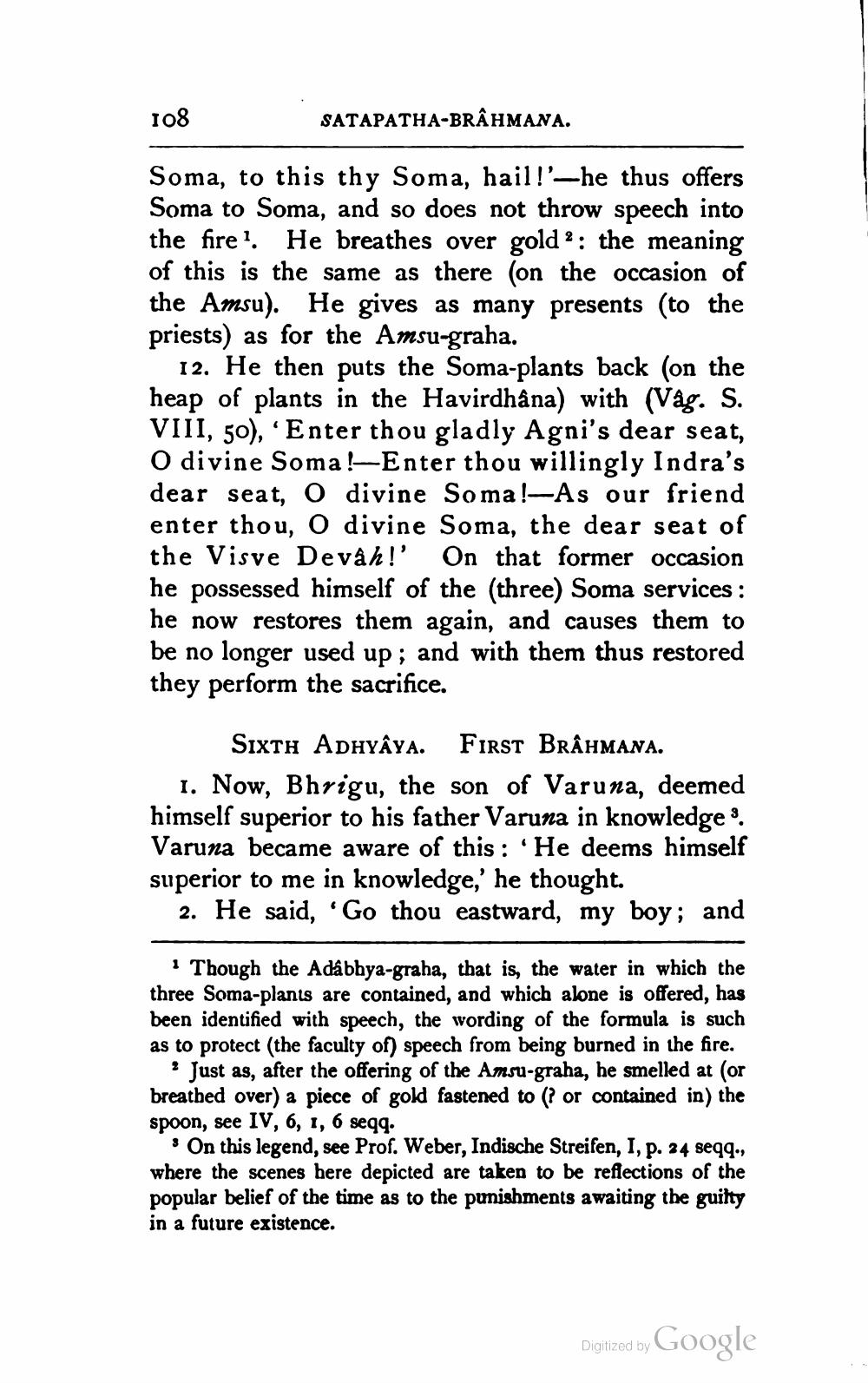________________
108
SATAPATHA-BRAHMANA.
Soma, to this thy Soma, hail!'-he thus offers Soma to Soma, and so does not throw speech into the fire1. He breathes over gold: the meaning of this is the same as there (on the occasion of the Amsu). He gives as many presents (to the priests) as for the Amsu-graha.
12. He then puts the Soma-plants back (on the heap of plants in the Havirdhâna) with (Vâg. S. VIII, 50), Enter thou gladly Agni's dear seat, O divine Soma!-Enter thou willingly Indra's dear seat, O divine Soma!-As our friend enter thou, O divine Soma, the dear seat of the Visve Devah!' On that former occasion he possessed himself of the (three) Soma services : he now restores them again, and causes them to be no longer used up; and with them thus restored they perform the sacrifice.
SIXTH ADHYAYA. FIRST BRAHMANA.
1. Now, Bhrigu, the son of Varuna, deemed himself superior to his father Varuna in knowledge3. Varuna became aware of this: 'He deems himself superior to me in knowledge,' he thought.
2. He said, 'Go thou eastward, my boy; and
'Though the Adâbhya-graha, that is, the water in which the three Soma-plants are contained, and which alone is offered, has been identified with speech, the wording of the formula is such as to protect (the faculty of) speech from being burned in the fire.
2
Just as, after the offering of the Amsu-graha, he smelled at (or breathed over) a piece of gold fastened to (? or contained in) the spoon, see IV, 6, 1, 6 seqq.
On this legend, see Prof. Weber, Indische Streifen, I, p. 24 seqq., where the scenes here depicted are taken to be reflections of the popular belief of the time as to the punishments awaiting the guilty in a future existence.
Digitized by
Google




